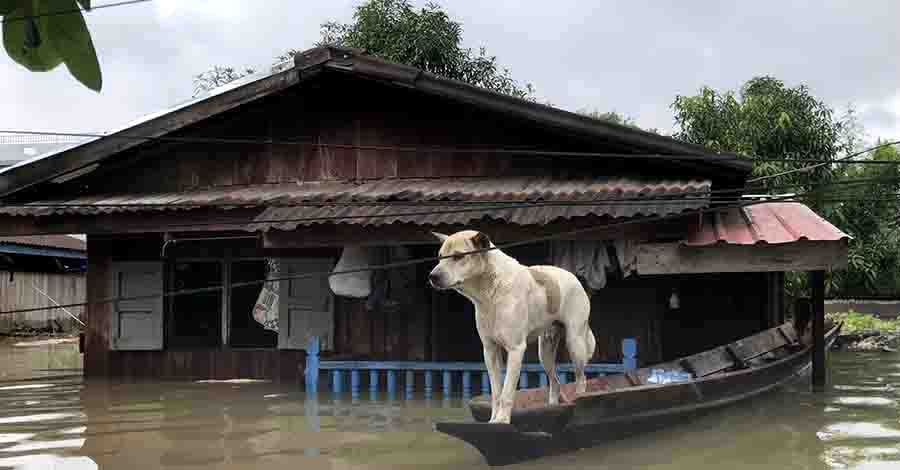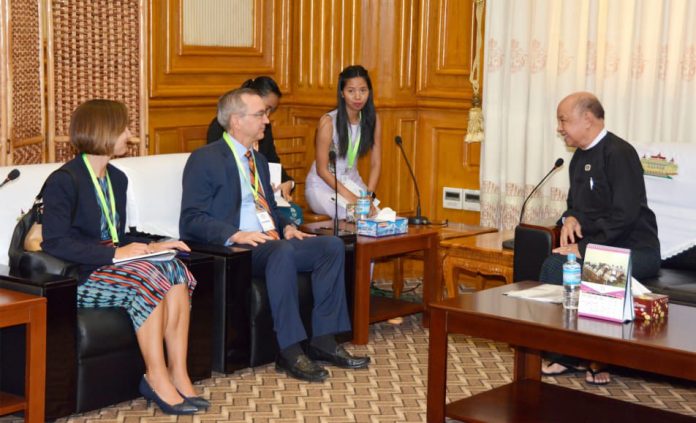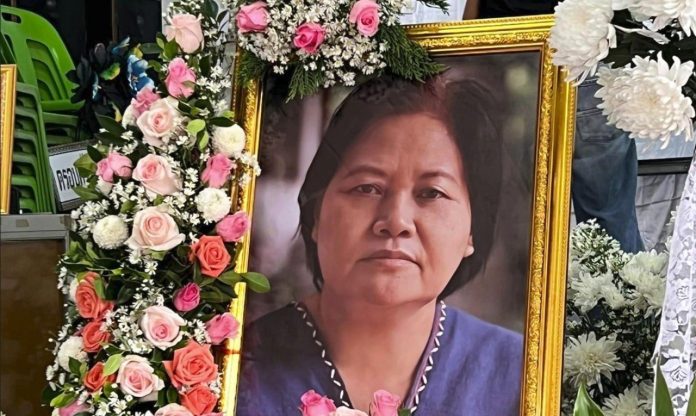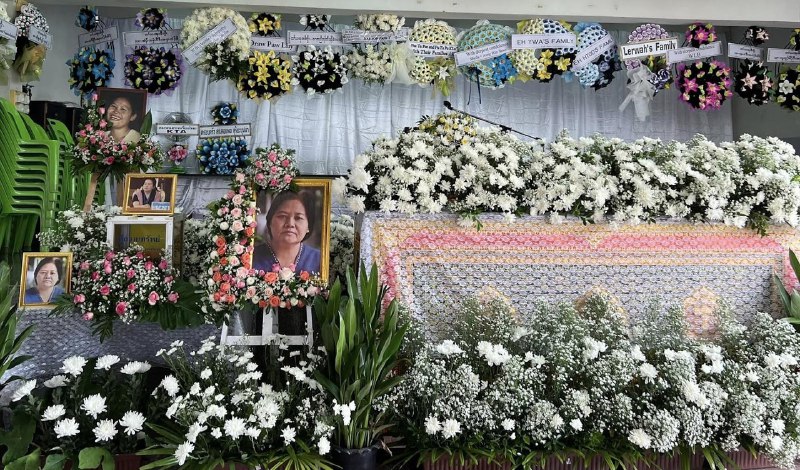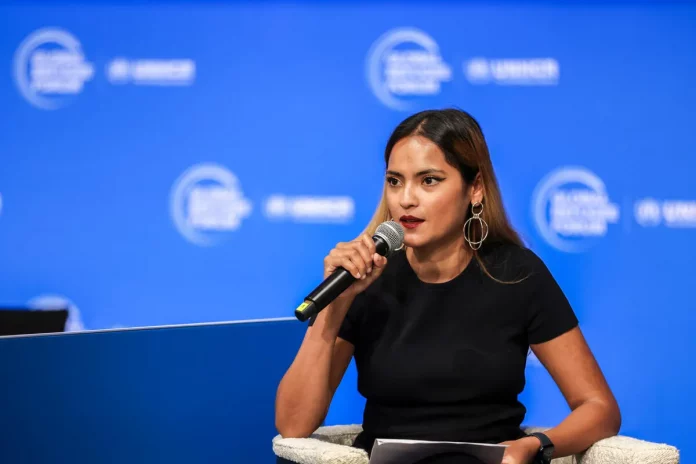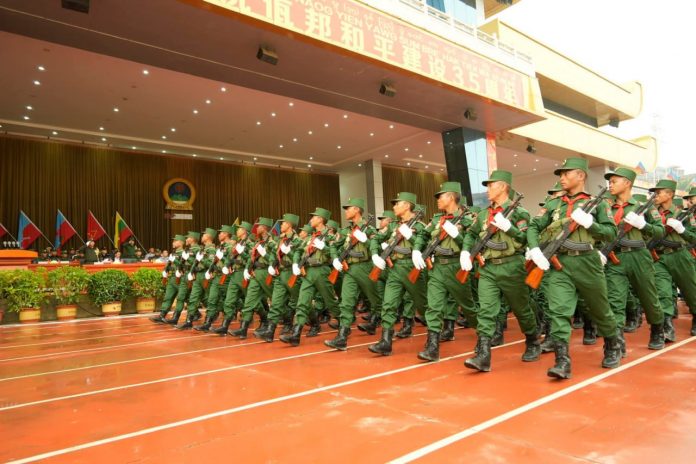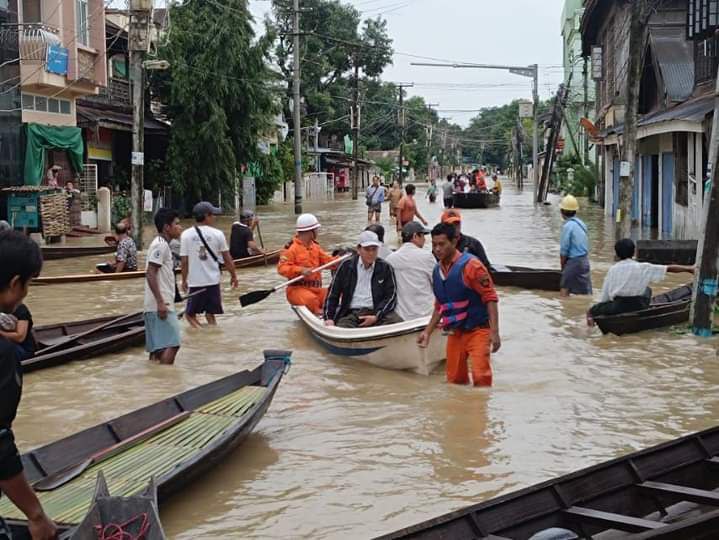Originally published on Missing Perspectives
By Noor Azizah
Noor Azizah and her family had to flee Arakan, Burma/Myanmar due to escalating persecution of the Rohingya.
My name is Noor Azizah, and I am a proud Indigenous Rohingya woman from Arakan, Burma/Myanmar. I was born in 1995, during a period when waves of violence occurred against the Rohingya in our ancestral homeland. My parents, alongside my two elder sisters, two elder brothers, and myself as a baby, had to flee due to escalating persecution of the Rohingya.
There were no opportunities to thrive, and my parents predicted that the violence would only increase, which later proved correct. They believed that inaction would likely lead to the deaths of their children. They couldn’t envision a future for their children in their ancestral homeland.
We started our journey through Southeast Asia on foot, walking through dense jungles and hopping on any boat that would take us to land. We ate what scraps of food we could find, took local buses, and relied on the generosity of locals, eventually ending up in Sabah, Malaysia. My memories of the initial journey are blurry because I was just a baby at the time. Yet the journey I made as an infant is extremely common.
The story of my family is a tragic echo of countless others. Fuelled by absolute desperation and the innate desire to protect their children, many parents take this life-threatening journey across lands and oceans because it is the safer option.
A taste of childhood
My most vivid memories are of our displacement in Sabah. I was displaced for eight-and-a-half years in a place my parents hoped would provide us with a safe home. Unfortunately, the safe haven my parents saw was an illusion. It was a living hell where living meant survival and little else. My siblings and I were robbed of our childhood and teenage years.
My three elder siblings took on caregiving roles, meaning their teenage years were filled with ensuring their two younger siblings were kept alive. We also hid our identity as Rohingya. We were afraid even to say the word “Rohingya” for fear of persecution. My eldest sister, Yasmeen, made immense sacrifices. I will never be able to repay her for what she has done to keep her four younger siblings alive.
She was essentially our second mother. She is highly intelligent and possesses strong survival and linguistic skills. She picked up the local Malay language, which we all eventually did. We didn’t do this for fun; we did it to survive. Yasmeen would pick up odd jobs as a teenager just to bring food to the table.
Despite all the hardships, she gave her two youngest siblings, my brother and I, a taste of childhood. She would dress us up the same, me often as a boy, and I remember crying and hating it, wanting to dress in pink and be a princess. These are some of my fondest childhood memories. She would take us to the night markets and ask us to choose our favourite nasi goreng (fried rice) or pisang goreng (fried banana). She made sure we had some enjoyment in our childhood despite all the hardships and hurdles. She sacrificed her teenage years to protect and raise her younger siblings.
Hiding spots and nenek
Those were the good times. The rest of our time was spent in fear. The police would carry out operations to target so-called “illegal migrants” in Sabah, many of whom were Indigenous Filipinos.
The anxiety was high in my family when my Mum heard news of these operations. But my Mum is smart. She is a survivor. My mother, who was deprived of an education in Arakan, kept five of her children alive by ensuring we all had hiding spots during such operations. She drilled this into us so that it would be second nature. She knew we would have no time to think if the police came for us. Her hiding spot was in our wardrobe.
I remember my elder brother Azeem drilling holes in the wardrobe, ensuring my mother could fit inside. I can still see my mum practising and getting inside as quickly and quietly as possible. When things got really bad, my hiding spot became semi-permanent. My hiding spot was in the jungles of Sabah with a woman my Mum had befriended. She was a displaced Indigenous Sulug person from the Philippines. I stayed in the jungles with her, and she showed me only kindness. She made sure I was fed, happy, and taken care of despite being extremely poor and needing to feed her own family. I didn’t know her name; I called her “Nenek,” which means grandma in Malay. I didn’t feel the need to know her name – many Australian children would call her “Gran.”
In 2016, my brother Nordin and I returned to Sabah to look for her. We had no contacts, so we spoke to locals for two days asking for information. My brother and I sat at a pasar malam (night market) one night. We had often been to this night market when we were displaced as children. While we were there, a lady noticed us. “I remember you both. You lived here about 10 years ago,” she said. We exchanged some dialogue and eventually asked if she had any connections with “Nenek.” Not only did she say yes, but she also confirmed that Nenek, my “Gran,” was still alive. Better yet, she called Nenek’s great-grandchildren right then and there. Apparently, Nenek still lived in the jungles of Sabah. The lady told us to meet the following day at 5pm in the abandoned building we used to live in.
This type of meeting may sound strange to those who haven’t lived the refugee experience, but we immediately understood the need for secrecy. Nenek was still hiding from the police and needed to be careful. My brother and I couldn’t sleep that night, part of us reliving the fears that dominated our waking and sleeping lives as children: “Were we going to be robbed or murdered?”
We took the shot and knocked on the door. Her great-great-grandchild responded, very afraid to open the door. I said, “aku si jija dengan si nordin,” meaning “this is Azizah and Nordin.” She opened the door, and there was Nenek, looking the same except with white hair. We didn’t know her age. Nenek said, “Oh my god, Yasmeen, it’s you,” thinking I was my eldest sister. I replied, “aku bukan Yasmeen, aku si Jijah,” meaning “I’m not Yasmeen, I am Azizah.” We both burst into tears, crying and hugging.
She told me there wasn’t a single day she went by without thinking about me. In her own way, Nenek had grieved the loss of a grandchild. Though I offered her money as a token of gratitude, I knew it could never truly repay her for everything she had done for me. I owed her so much, but I was powerless to give her and her family the one thing they truly needed – a guarantee of safety. The year after, my parents went back to show gratitude. At this point, she was too old to climb down from the jungle, so my parents had to hike up the same path I hid in. My parents told me she had a photo of me in her wooden shack when I was little beside her bed.
In October 2003, our hell ended. The Australian government granted my entire family asylum. We arrived in Australia. For the first time in my life, I was safe and had rights – I was a person, and I finally had the paperwork to prove it. But I still don’t feel completely free. That feeling will come when all Rohingya people are free, and I no longer carry the burden of fighting for our freedom.
Today, I am the co-founder of the Rohingya Maìyafuìnor Collaborative Network, a women-led, Rohingya-led, and refugee-led organisation working on Rohingya human rights issues, SGBV, education, and translocal solidarity with a focus on women, peace, and security. I am also co-founder of the Rohingya Mayafunor Collaborative Network, alongside four remarkable Rohingya women who also faced displacement in ASEAN and resettled in Canada, the U.S., and New Zealand.
Impact of genocide
The active genocide against us has spanned 82 years. Make no mistake, it is a planned and systematic genocide. This genocide draws on many familiar tools from the oppressor’s toolbox, including compulsory labour, political disenfranchisement (Rohingya were stripped of their citizenship in 1982), land dispossession, physical violence, restrictions on marriage, closure of mosques, denial of access to education, regulation of families, burning of villages and homes, and the use of rape as a military tactic and form of psychological torture.
It is important to note that the main perpetrator, the military junta, used the Bamar people to conduct their genocide. In 2017, a mass displacement of 700,000 Rohingya fled to Bangladesh in response to “Operation Clearance.” The Burmese military armed and trained non-Rohingya and non-Muslim Rakhine people before the attacks. They visited each Rohingya household and removed any weapons and knives, leaving the Rohingya without any tools to fight back. This so-called Operation led to the immediate deaths of more than 24,000 Rohingya. Countless others died in subsequent months and years as a result of Operation Clearance.
Now fast forward to May 17th, 2024. Armed gunmen order Rohingya families in Arakan, Buthidaung, to evacuate by 10 am. The next morning, May 18th, I awoke to videos showing my mother’s village ablaze. That evening, my mother called, speaking with her nephew, who feared it might be their last conversation as the junta intensified its final killings of Rohingya. The junta’s severe restrictions on cameras, the internet, and communication have severely limited coverage and contact. Meanwhile, clashes between the Rakhine Army and the Burmese military junta continue to perpetrate genocide against Rohingya, resulting in the displacement of 45,000 Rohingya fleeing to Bangladesh and 200,000 internally displaced.
What we have seen are mass arrivals of Rohingya fleeing to neighbouring countries such as Malaysia, Indonesia, and Thailand. This will only increase as we see new waves of violence.
How Rohingya are met in the region and double standards
Due to misinformation, disinformation, and hate speech, Rohingya fleeing genocide are facing hostility in the region, which is manifesting into physical violence. Personally visiting my Rohingya brothers and sisters in Malaysia and Indonesia in recent months, I’ve witnessed their anxiety.
On a day when two million Indonesians protested for Gaza, a boat carrying Rohingya in Aceh was turned away. A Rohingya mother with two young children recounted to the BBC how one of her children died from starvation, and she had to bury the child by throwing the child into the sea. Where are the protests? Where are the voices of outrage? Where is the Instagram protest hashtag?
There is a clear double standard arising out of racism, colourism, and selective empathy. I’ve faced online attacks myself. A video posted by UNHCR Asia where I expressed that the Rohingya want to return home received around 5,500 comments, many from hate bots or real people, branding us as “too black, too dark, too uncivilised, and animal-like.” One comment that really hit me asked, “Why did the military junta not finish their job and just kill them all?”
Reflecting on this, I think of my suffering brothers and sisters. If I, a resettled Rohingya refugee in human rights advocacy for a decade, faces such treatment, imagine the fear among my people currently displaced. This hate speech isn’t spontaneous; it mirrors the language of the military junta and reinforces their genocidal agenda. Where is our support in the face of such hatred? My team and I have been working to build links between displaced Rohingya and local communities. We recently organised an art competition in Aceh to foster unity, bridging host communities and Rohingya with powerful images showcasing our shared humanity.
Conclusion
I could elaborate extensively on the Rohingya genocide and tell stories of Rohingya displacement in ASEAN. The situation is truly not complex: Rohingya people are facing annihilation, with various parties directly or indirectly perpetrating harm and escalating violence. There are now more Rohingya living outside Burma/Myanmar than within its borders. Doesn’t this underscore the severity of the crisis? The genocide continues unabated, necessitating urgent international community and public support. We’ve witnessed widespread demonstrations, protests, encampments, and global pressure on issues like Gaza.
Yet when world leaders act on the Rohingya, they are criticised for their inaction on other issues. When we finally get any small amount of attention, it is taken away from us and given to those deemed more “deserving.” Similar solidarity can and should be extended to the Rohingya, as we are defined by the United Nations as the most persecuted minority worldwide. This piece is dedicated to my siblings, who have resettled and are now raising beautiful Rohingya children, who have only shown true strength, love, support, and resilience.
It’s also dedicated to my Rohingya community, who have taught me lessons in generosity, kindness, and a deep love for our culture, people, and ancestral homeland of Arakan. We hope to see Arakan rebuilt and reclaim what has been taken away from us over the last 82 years.
Noor Azizah is the co-founder of the Rohingya Maiyafuinor Collaborative Network, a women-led, Rohingya-led, and refugee-led organisation working on Rohingya human rights issues, SGBV, education, and translocal solidarity with a focus on women, peace, and security.
